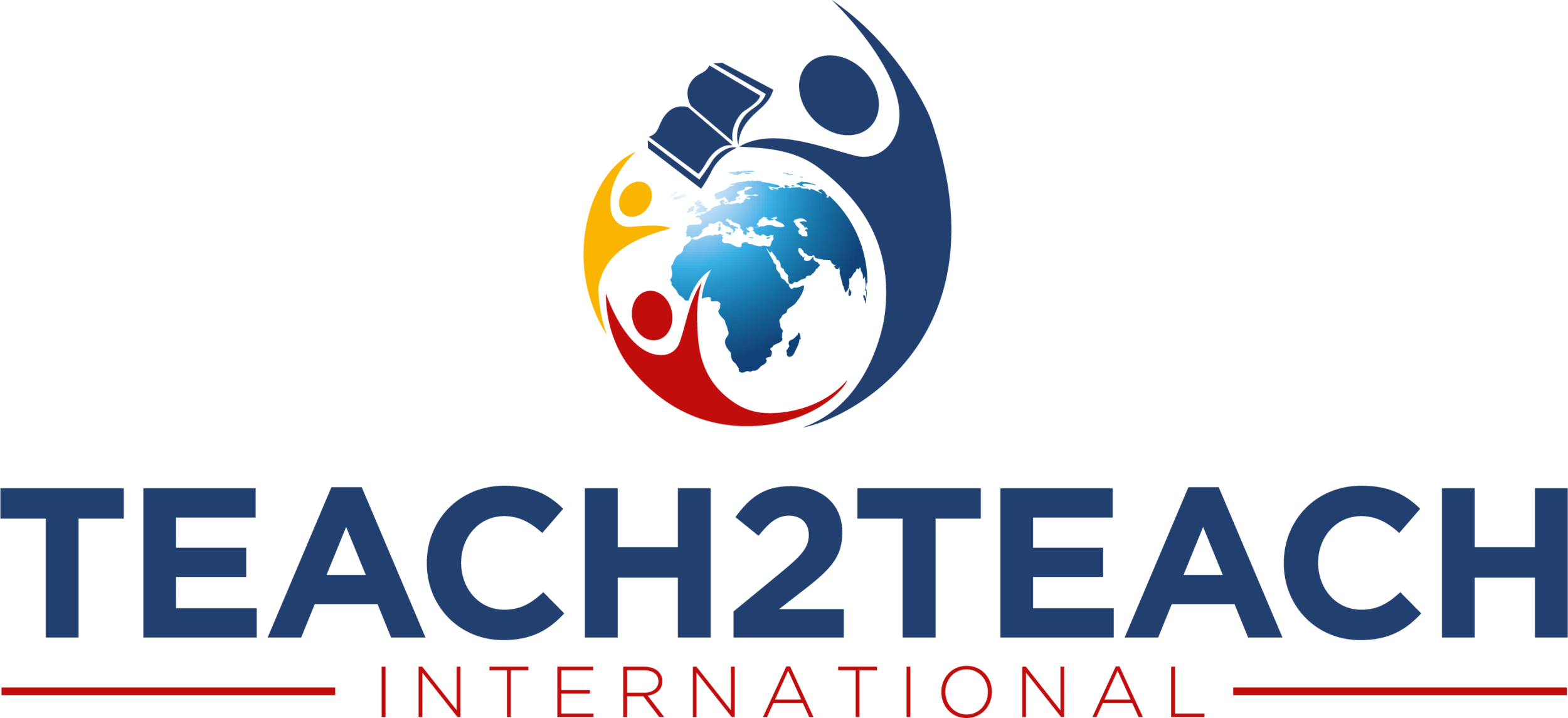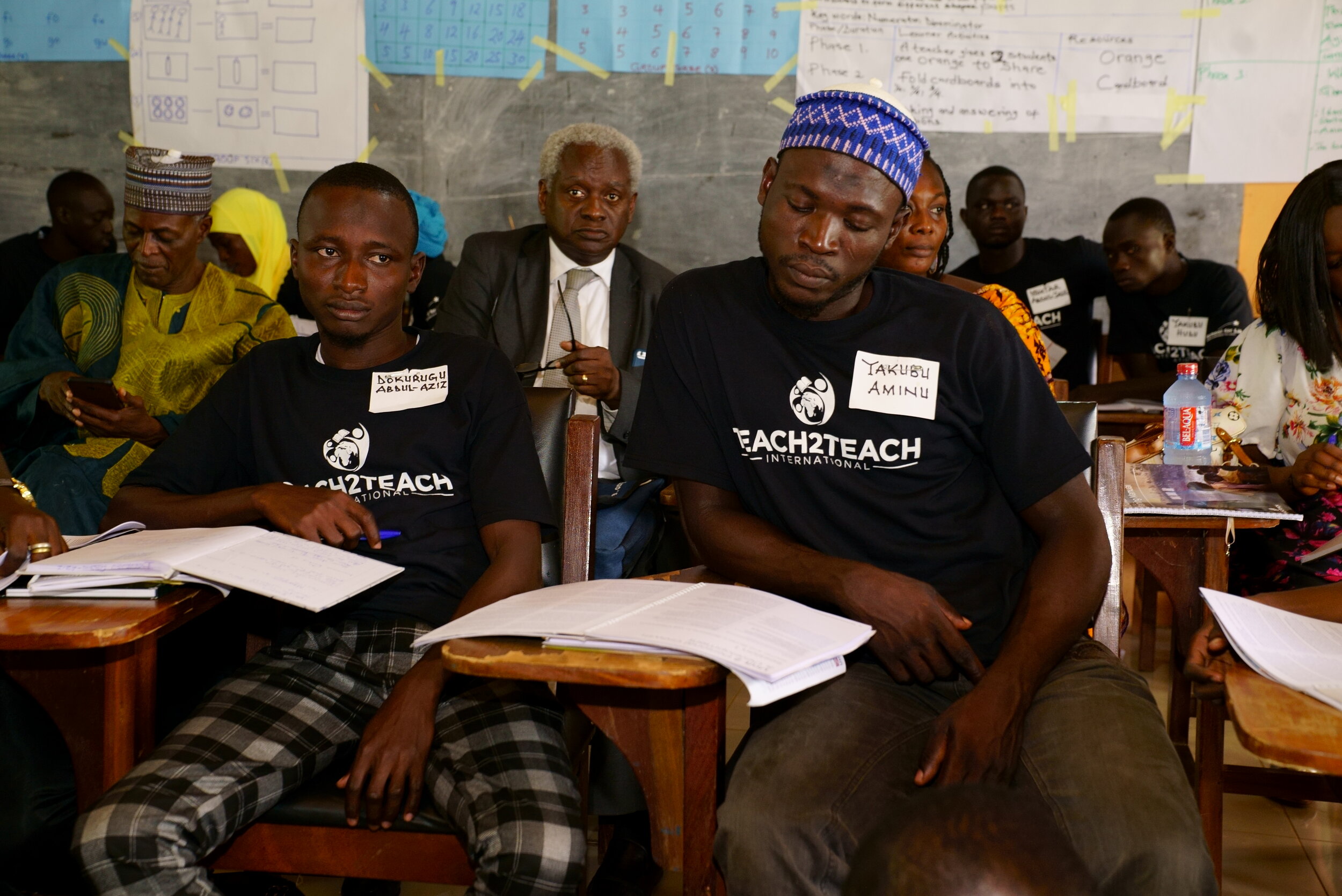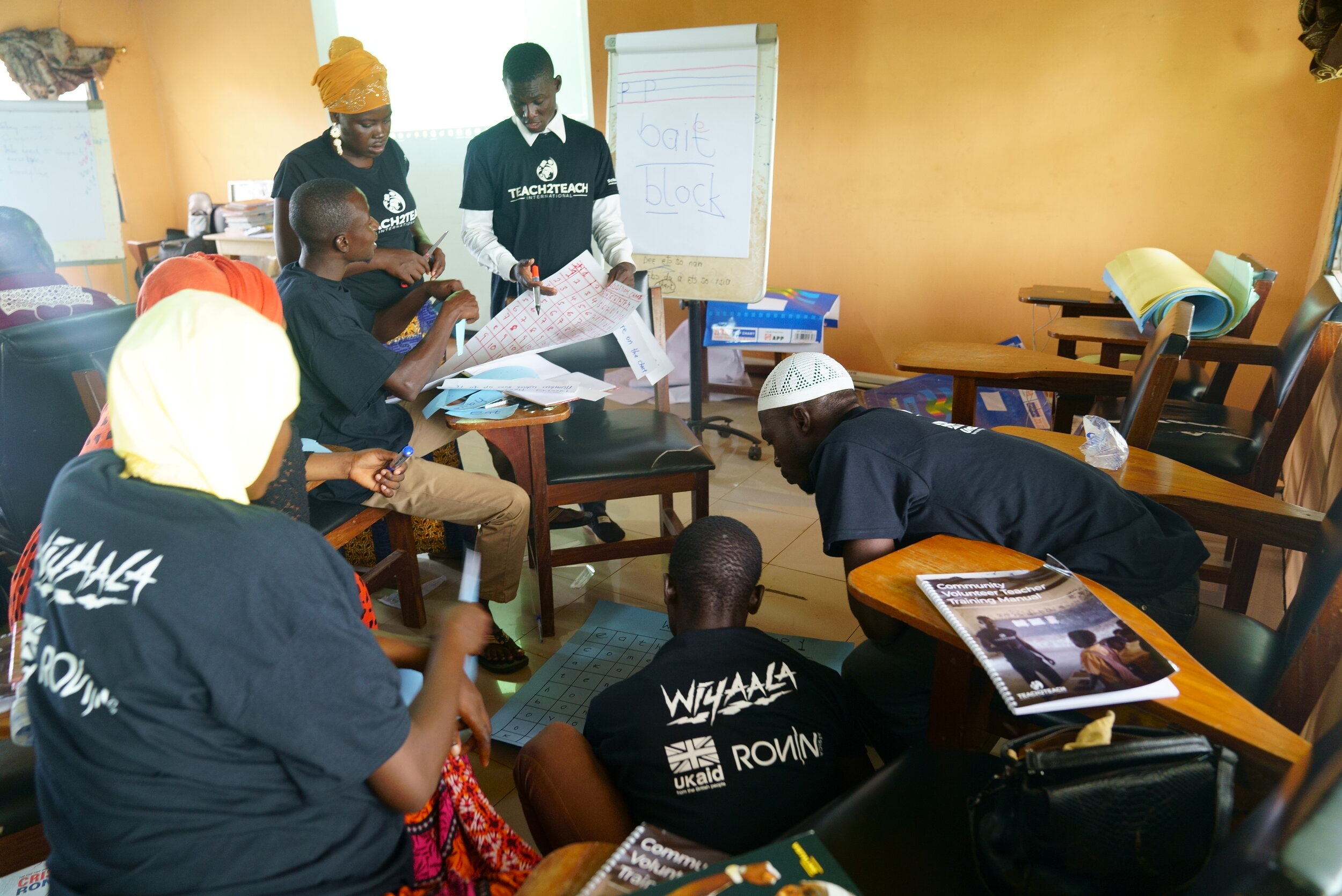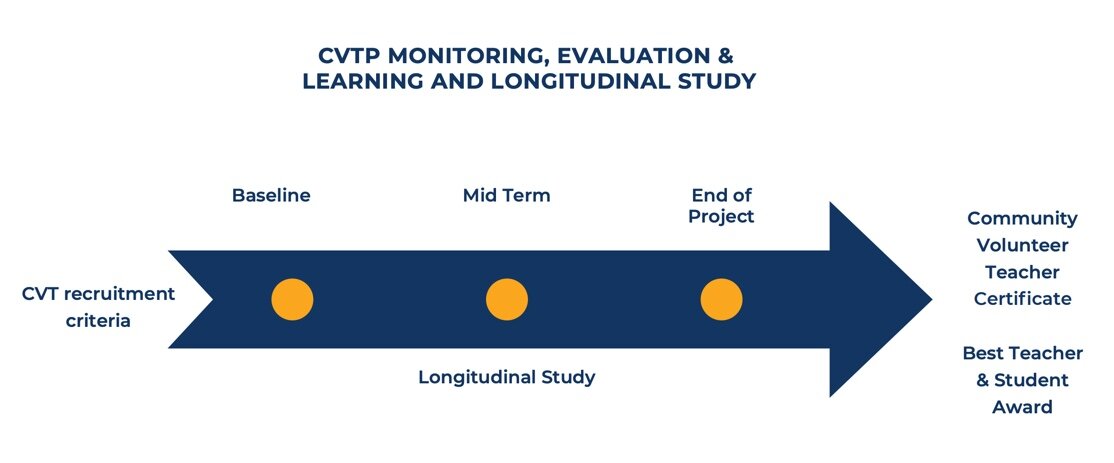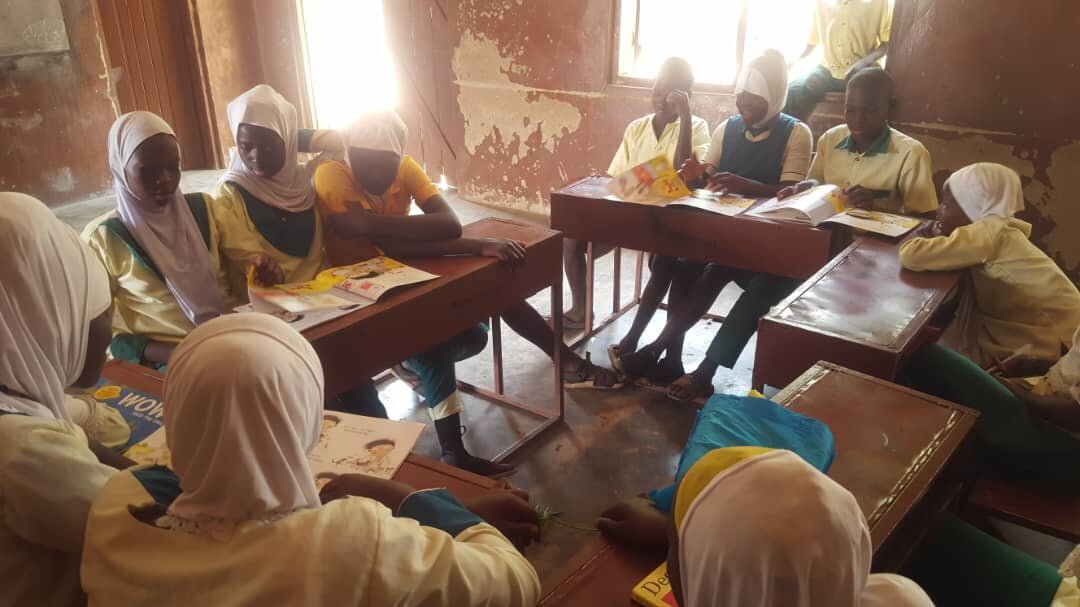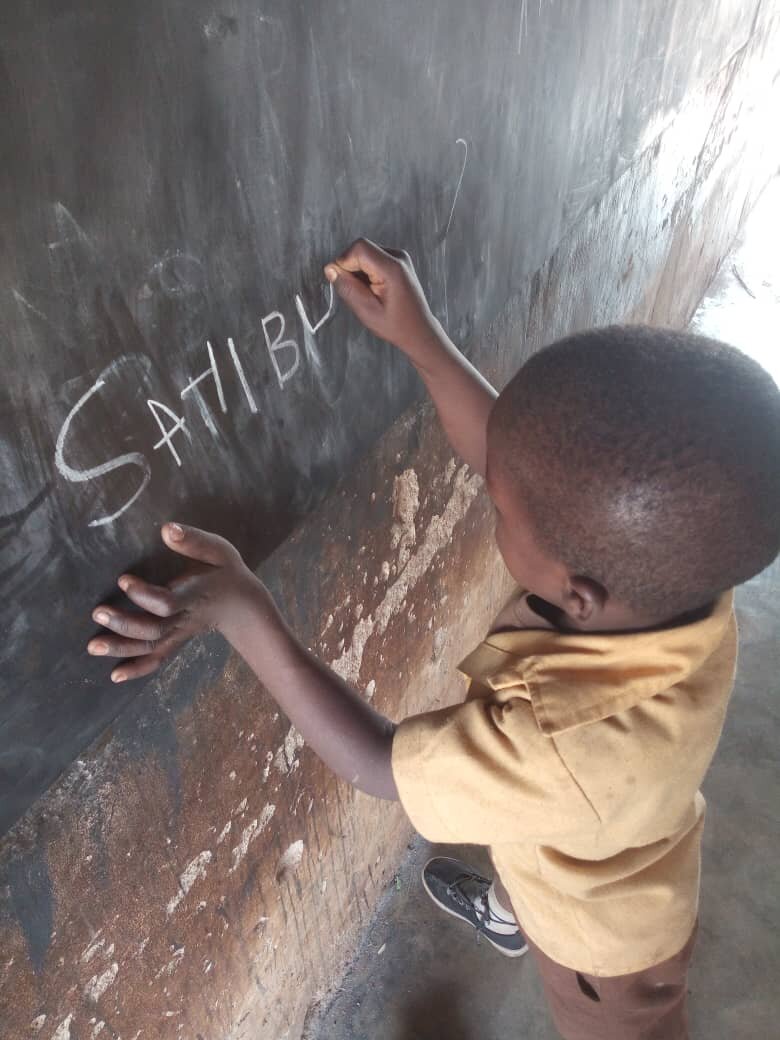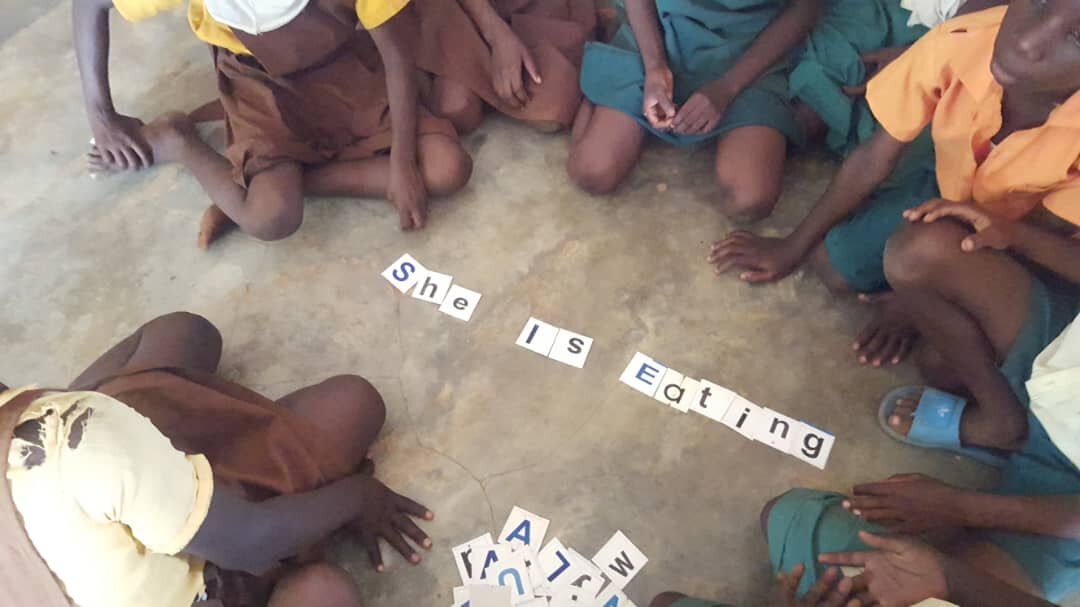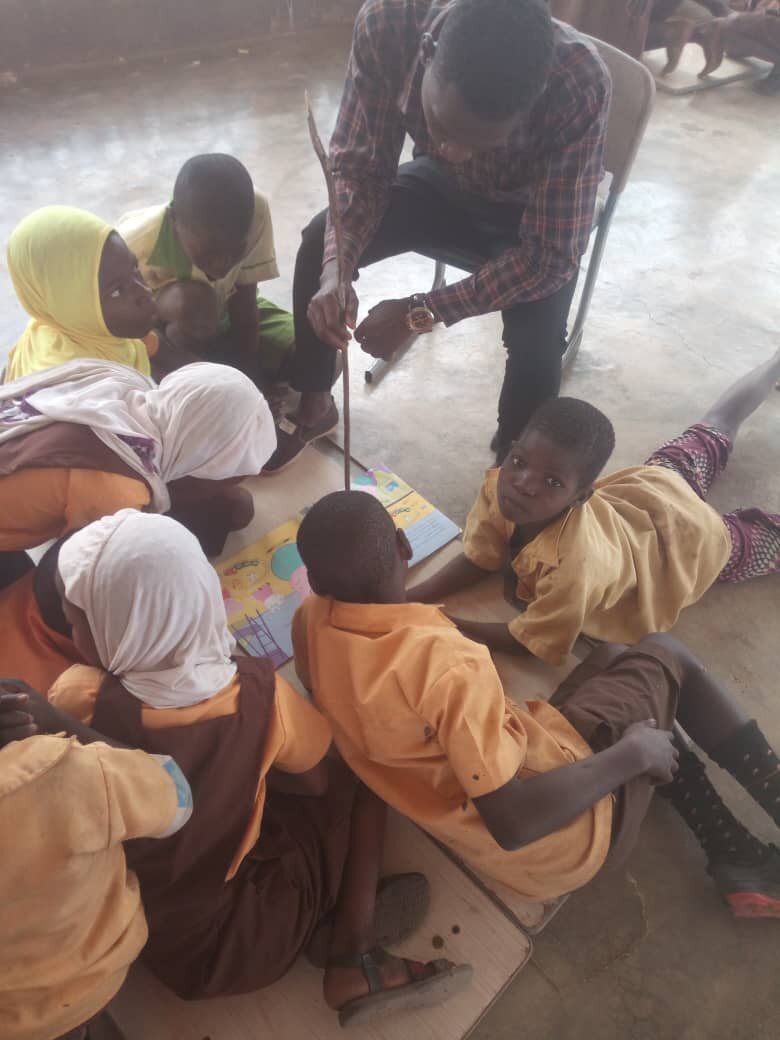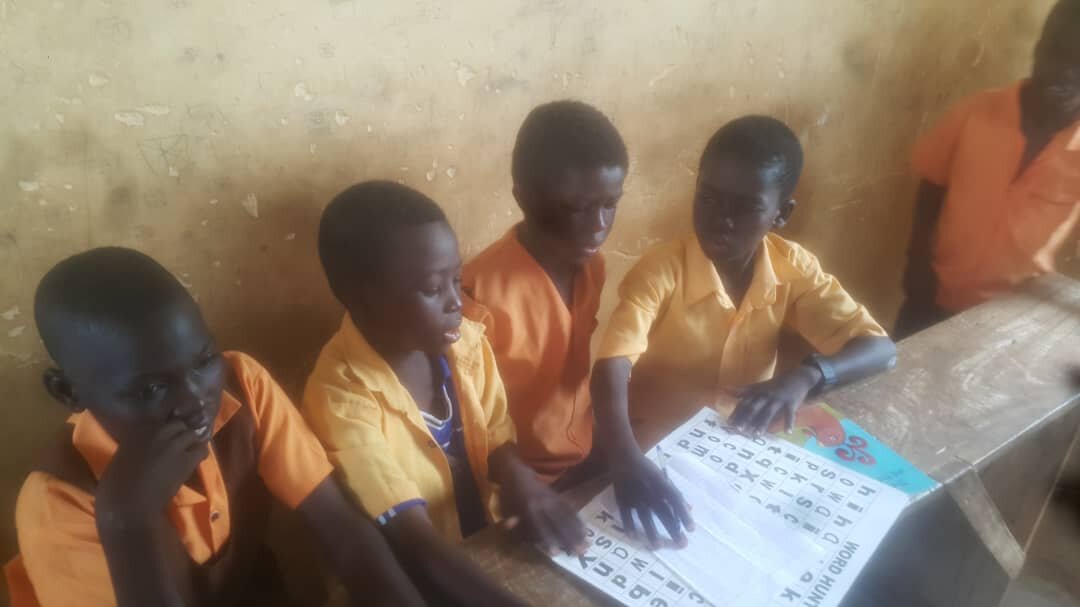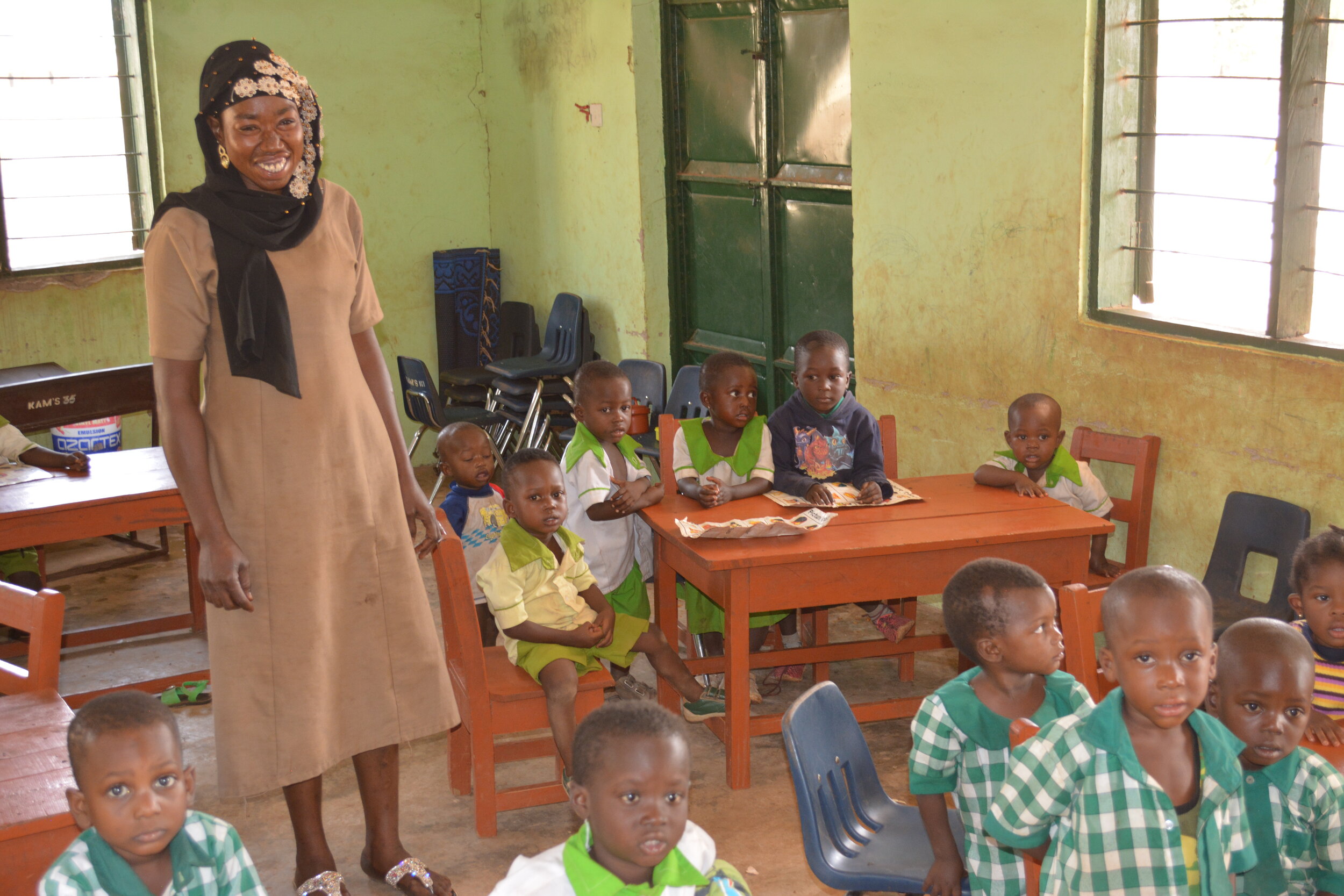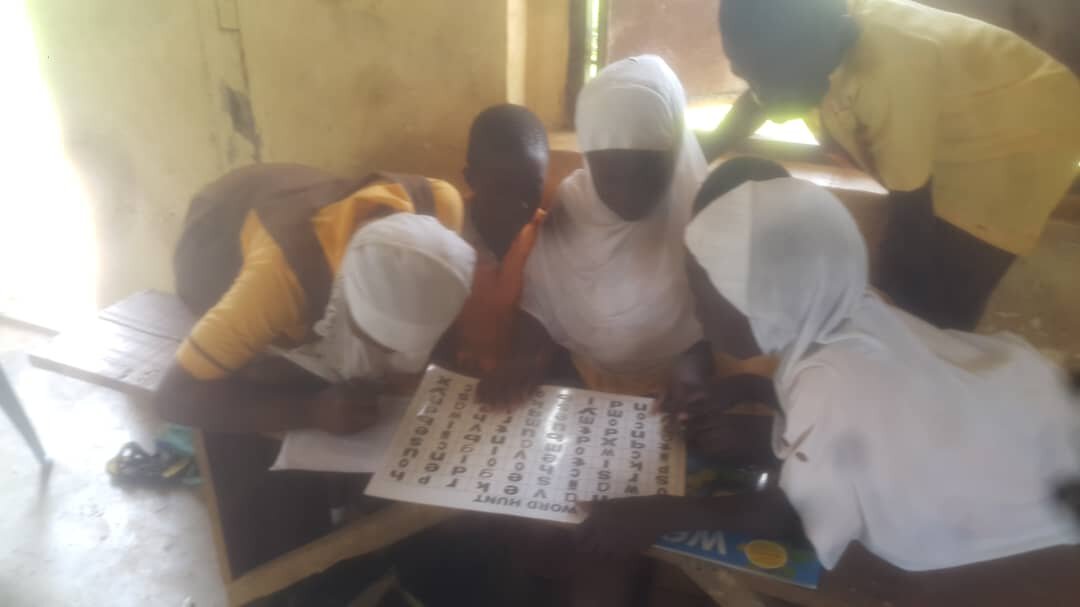Community Volunteer Teacher Programme
“The project does not only contribute to improve quality teaching in the beneficiary schools, but also serves as a stepping stone for unemployed young people to become employed in the future.”
Ghana Education Service, 2020
The Community Volunteer Teacher programme (CVT programme) is our flagship programme, developed in partnership with the highly respected grassroots education provider School for Life (SfL), Ghana. We work in partnership with the Ghana Education Service, University for Development Studies (UDS) Tamale, Bagabaga College of Education, CAMFED and Book Aid International.
What is the Community Volunteer Teacher (CVT) programme?
Learning-by-doing
Teach2Teach International’s CVT programme provides a pathway for ambitious but disadvantaged young people to become Community Volunteer Teachers (CVTs), and a rich learning environment for their students to learn to read, write and think for themselves. T2T’s accelerated learning programme means CVTs learn to become high-quality teachers, proficient in inclusive and adaptive teaching processes, in just 8 days.
We work within national curriculum requirements and our lesson plans and teaching and learning materials are culturally specific and locally sourced. We include components on leadership, mentoring, identity, equal opportunities, human rights and the rights of the child, safeguarding, whistle-blowing, empowerment and resilience.
Local solutions to global problems
Teach2Teach International challenges poverty and inequality by expanding access to quality education, vocational training and inspiring leadership for social justice in Ghana’s most poverty affected, remote communities. Since August 2019 our Community Volunteer Teacher Programme has trained quality primary school community volunteer teachers in two districts in northern Ghana, in the heart of local communities, to widen access to education for marginalised groups, raise literacy, numeracy and teaching standards, as well as provide valuable skills and employment opportunities to local young people
Inclusive teaching practices
T2T's unique and innovative approach mainstreams core CBE methodology, developed by our partners SfL, and enhances it to provide a holistic learning programme, adding community teaching approaches, leadership and effective communication techniques, and creating an additional focus on safeguarding, disability and community/beneficiary feedback mechanisms. We provide permanent support to our CVTs, and have created a monitoring and networking tool that allows CVTs to share their experiences and results, and also to request support and advice both from our experienced trainers and from fellow CVTs.
CVTs are trained in adaptive, gender and disability sensitive learning approaches and community-based strategies that create an inclusive educational experience for all their students. In this way, CVTs become agents of change within their local communities.
“The T2T program has really brought a big change in me physically and emotionally for right now I’m confident enough to speak in public”. - Alhassan Iddrisu, Community Volunteer Teacher
T2T Teacher training manual and In-service support
T2T’s bespoke training manual and proven, ‘learn-by-doing’ methodology for primary teachers is based on an existing and proven pedagogical methodology – Complementary Basic Education (CBE) - which has been supported by USAID and DFID, and proven to work over 20 years.
“The training manual has been produced to the highest teacher preparation standards and is unique in terms of quality and design to provide teachers with skills to teach disadvantaged children.”
Professor Kwame Akyeampong, Professor of International Education and Development at The Open University
Training manual
Our bespoke training manual includes essential teaching training methods in gender and disability sensitive teaching approaches. Key modules include:
Complementary Basic Education (CBE) pedagogy
Safeguarding
Leadership and mentoring skills
Transferable skills
Critical thinking
Remote learning strategies
Open access education tools
Health and well-being strategies
Inclusive teaching practices, particularly for girls, persons with disabilities and out-of-school children transitioning to mainstream school
“The T2T and School for Life Training manuals are both unique and of an extremely highly quality.”
Abiba Saaka, District Director of the Ghana Education Service.
In service support
T2T’s programmes provide CVTs with in-service support through continuous needs analysis, monitoring and evaluation frameworks, beneficiary feedback mechanisms and refresher trainings. This ensures that CVTs continue to deliver high-quality education for all students.
T2T facilitates School Management Committees to ensure better management of schools
School inspectors, providing training to promote better oversight of schools and organisational structures
T2T creates Parent Teacher Associations (PTAs) to ensure schools become accountable
Teacher training workshops
T2T holds teacher training workshop to ensure CVTs are committed to personal and professional development and are trained in the most current, effective teaching methods. Workshops and training offer the opportunity for CVTs to engage with reflective learning and share their thoughts and perspectives around their professional journeys and their impact as teachers. Participatory workshops ensure CVTs have the opportunity to raise any concerns they may have and address these needs, making more confident, high-quality teachers.
School governance
T2T works towards sustainable, systemic change by ensuring schools are better managed and more accountable for the standard of education they deliver. Our programmes take a holistic approac, training stakeholders at every level.
T2T provides training for local education authorities and teachers to improve school governance structures. T2T ensures that the CVT programme is locally owned by providing community members and traditional leaders with a voice in relation to education.
Impact for students
“Before the volunteer teachers, there were hardly any children in the class, some of my friends didn’t come to school. But now, we all like coming to school because our teacher is very helpful and friendly. Now we all enjoy going to school.”
Amina, primary student
CBE’s impact assessments show that the methodology allows trained teachers to more significantly increase literacy and numeracy performance for their students, particularly for those without prior experience in school (Cambridge/REAL, 2018). As such CBE by itself addresses the need to increase the number of quality teachers in primary schools, creates a pedagogical curriculum that is easier and quicker to study, and focuses on developing critical thinking and the ability to embed basic skills into students.
Key outcomes:
Improved student enrolment and retention rates in marginalised communities, including for persons with disabilities and girls
More inclusive curricula and classrooms
CVTs trained to deliver adaptive learning, ensuring that students can continue learning if schools need to close
Reduced teacher and pupil lateness and absenteeism
Working towards the reintegration of students who have been out of school
